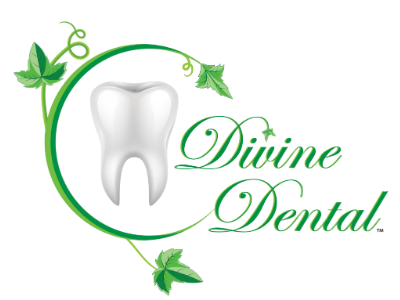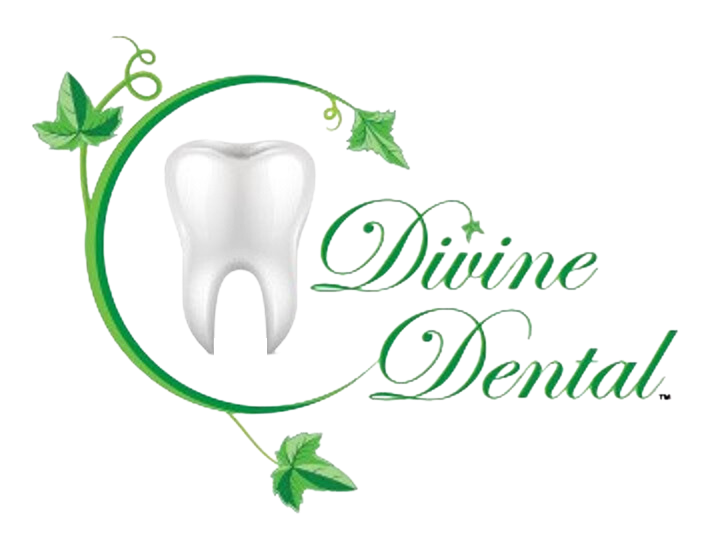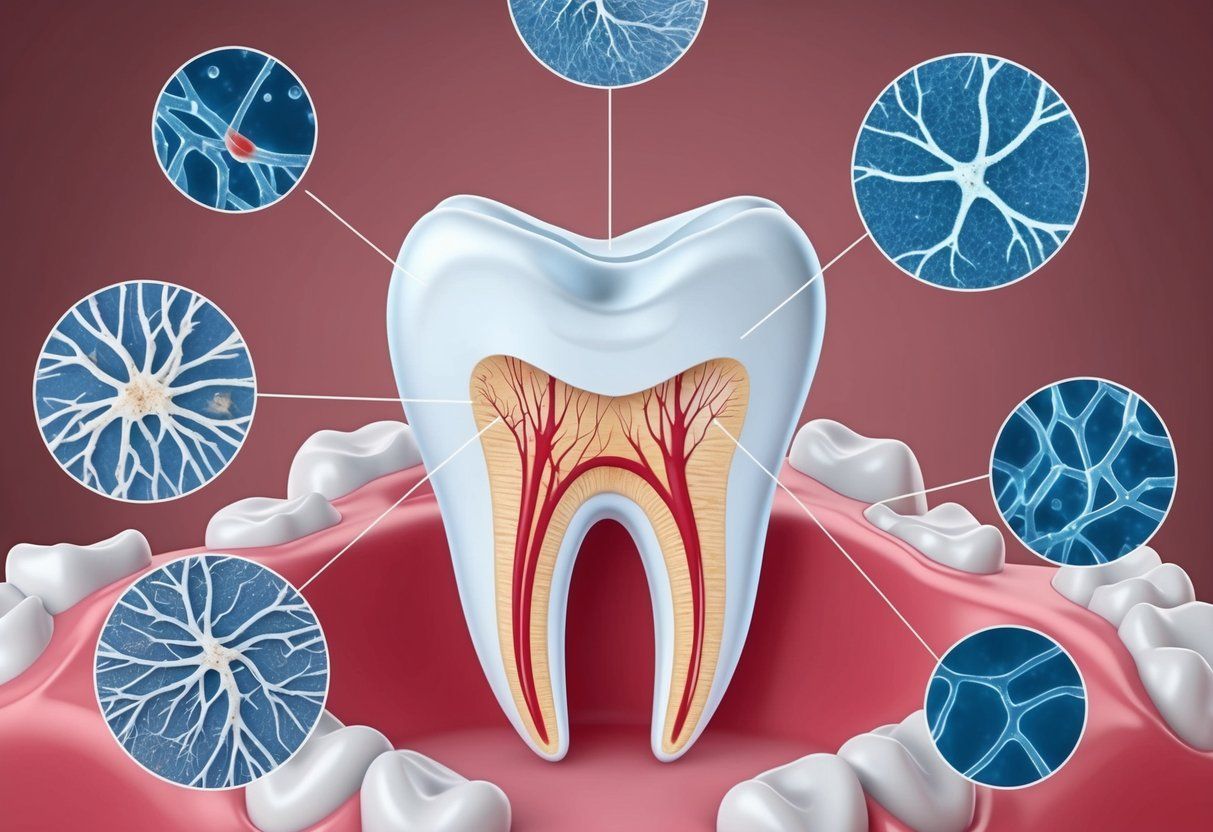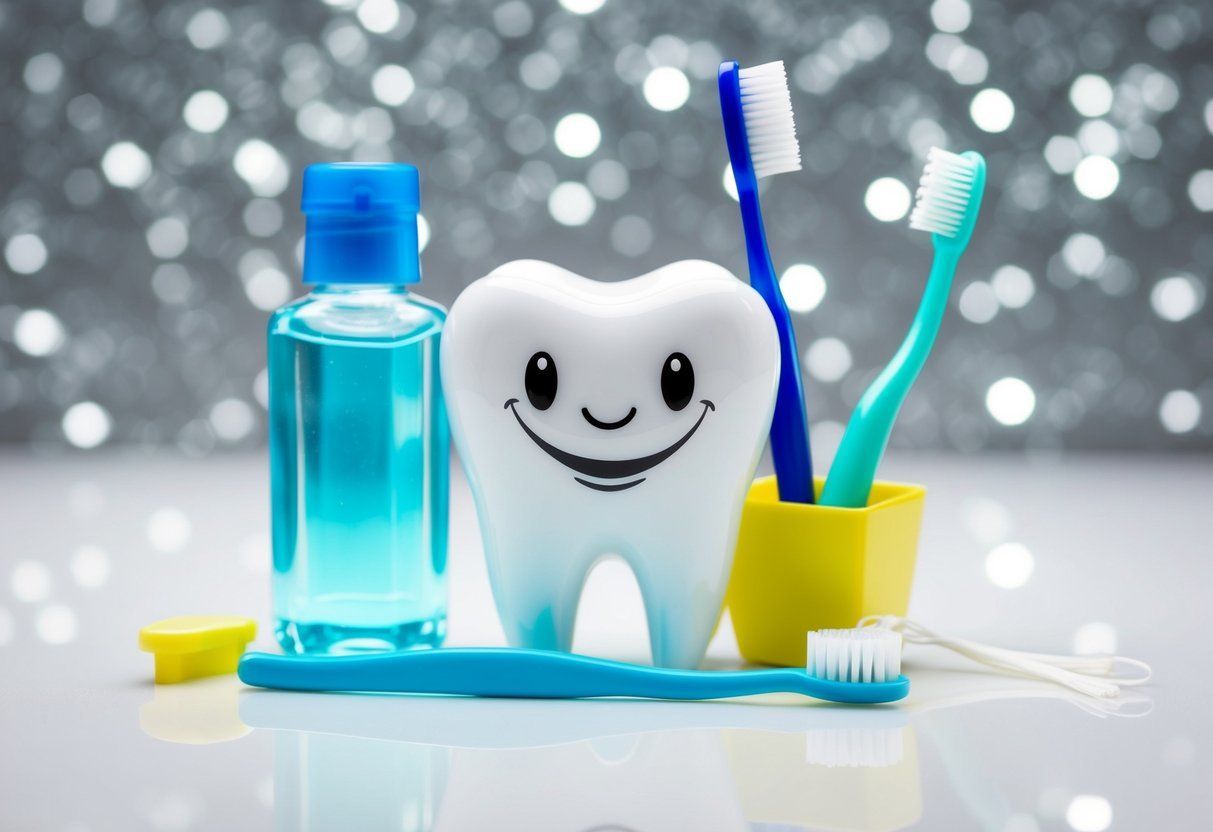The Connection Between Oral Health and Overall Wellness: Exploring the Link
Maintaining good oral health is important not only for a bright smile but also for overall wellness. The mouth is a gateway to the body, and oral health can have a significant impact on systemic health. Poor oral health has been linked to various health issues, including heart disease, diabetes, and even dementia.

Understanding Oral Health
Oral health refers to the health of the teeth, gums, and other tissues in the mouth. Maintaining good oral health involves regular brushing and flossing, routine dental check-ups, and a healthy diet. Neglecting oral health can lead to gum disease, tooth decay, and other dental problems.
Oral Health and Systemic Health
Research has shown that oral health is closely linked to systemic health. Poor oral health can increase the risk of various health issues, including heart disease, diabetes, and respiratory infections. Conversely, maintaining good oral health can help prevent these health problems.
Key Takeaways
- Maintaining good oral health is important for overall wellness.
- Poor oral health has been linked to various health issues, including heart disease, diabetes, and dementia.
- Maintaining good oral health involves regular brushing and flossing, routine dental check-ups, and a healthy diet.
Understanding Oral Health
Components of Oral Health
Oral health refers to the overall health of the teeth, gums, and mouth. It encompasses a range of factors, including the cleanliness of the mouth, the health of the gums, and the strength and vitality of the teeth. Good oral health is essential for overall wellness, as it can impact everything from the ability to eat and speak to the risk of developing systemic diseases.
Common Dental Issues and Diseases
There are several common dental issues and diseases that can impact oral health. Gum disease, for example, is a common condition that affects the gums and can lead to tooth loss if left untreated. Tooth decay and cavities are also common issues, and can be caused by poor oral hygiene, a diet high in sugar, or other factors.
The Role of Dentists and Dental Check-Ups
Dentists play a critical role in maintaining oral health. Regular dental check-ups can help detect and prevent dental issues before they become more serious. During a check-up, a dentist will examine the teeth and gums, clean the teeth, and provide advice on how to maintain good oral hygiene.
Overall, understanding oral health is essential for maintaining overall wellness. By taking care of the teeth, gums, and mouth, individuals can reduce their risk of developing dental issues and systemic diseases, and enjoy a healthier, happier life.
Oral Health and Systemic Health
The Mouth-Body Connection
The mouth is not an isolated entity in the human body. It is connected to the rest of the body through blood vessels and nerves. The mouth is also the gateway to the digestive and respiratory systems. Therefore, oral health can have a significant impact on overall health and well-being. A healthy mouth can help maintain good overall health, while poor oral health can contribute to various health problems.
Impact of Oral Bacteria on Overall Wellness
The mouth is home to millions of bacteria, some of which are beneficial, while others are harmful. Poor oral hygiene can lead to an overgrowth of harmful bacteria, which can cause tooth decay, gum disease, and bad breath. Moreover, the bacteria in the mouth can enter the bloodstream and spread to other parts of the body, leading to systemic infections and inflammation.
Studies have shown that oral bacteria can contribute to the development of chronic diseases such as heart disease, diabetes, stroke, and pneumonia. For example, the bacteria that cause gum disease can enter the bloodstream and contribute to the development of atherosclerosis, a condition that can lead to heart attacks and strokes. Similarly, people with diabetes are more prone to gum disease, which can make it harder to control blood sugar levels.
Chronic Diseases Linked to Oral Health
Poor oral health has also been linked to other chronic diseases such as cardiovascular disease and respiratory infections. For example, people with gum disease are more likely to develop respiratory infections such as pneumonia and chronic obstructive pulmonary disease (COPD). Moreover, the inflammation caused by gum disease can contribute to the development of cardiovascular disease.
In conclusion, oral health is an essential component of overall health and well-being. Poor oral hygiene can lead to various health problems, while good oral hygiene can help maintain good overall health. Therefore, it is crucial to practice good oral hygiene habits such as brushing and flossing regularly, visiting the dentist for regular check-ups, and eating a healthy diet to maintain good oral and systemic health.
Preventive Measures and Daily Practices
The Importance of Oral Hygiene
Maintaining good oral hygiene is essential for preventing dental problems and promoting overall health. Brushing and flossing regularly can help remove plaque and prevent tooth decay and gum disease. It is recommended to brush at least twice a day with fluoride toothpaste and floss daily to remove food particles and plaque between teeth. Using mouthwash can also help kill bacteria that cause bad breath and gum disease.
Nutrition and Oral Health
A balanced diet that includes fruits, vegetables, whole grains, and lean protein can help maintain good oral health. Limiting sugary and acidic foods and drinks can help prevent tooth decay and erosion. Drinking water can also help wash away food particles and neutralize acid in the mouth.
Professional Dental Care and Self-Care
Regular dental check-ups and cleanings are important for maintaining good oral health. Dentists can detect and treat dental problems early on, preventing them from becoming more serious. In addition to professional dental care, self-care practices such as using a soft-bristled toothbrush and replacing it every three to four months can help maintain good oral hygiene. Using dental floss and mouthwash can also help remove plaque and bacteria from the mouth.
Overall, preventive measures and daily practices such as maintaining good oral hygiene, eating a balanced diet, and seeking professional dental care can help promote good oral health and prevent dental problems.
Oral Health Throughout Life Stages
Oral Health in Children and Adolescents
Good oral health habits should be established early in life to prevent dental problems in the future. Children and adolescents should brush their teeth twice a day with fluoride toothpaste and floss daily. Parents should supervise their children’s brushing until they are at least 8 years old. In addition, children should have regular dental check-ups to detect and treat any dental problems early.
Childhood and adolescence are critical periods for dental development. Poor oral health can have a negative impact on a child’s overall health and development. For example, dental caries (cavities) can cause pain, infection, and difficulty eating, which can affect a child’s growth and development.
Challenges to Oral Health in Adults and the Elderly
As people age, they face a number of challenges to their oral health. These challenges include dry mouth, gum disease, tooth loss, and oral cancer. Dry mouth is a common problem in older adults and can be caused by certain medications or medical conditions. Gum disease, or periodontitis, is a chronic inflammatory condition that affects the gums and bone that support the teeth. Tooth loss can result from gum disease, decay, or injury. Oral cancer is more common in older adults and can be caused by tobacco and alcohol use.
To maintain good oral health in adulthood and old age, it is important to practice good oral hygiene, eat a healthy diet, and avoid tobacco and excessive alcohol consumption. Regular dental check-ups are also important to detect and treat any dental problems early.
Oral Health during Pregnancy
Pregnancy can have a significant impact on a woman’s oral health. Hormonal changes during pregnancy can increase the risk of gum disease, which can lead to premature birth and low birth weight. Pregnant women should brush and floss daily and have regular dental check-ups to prevent and treat gum disease.
In addition, pregnant women should avoid certain medications and dental procedures during pregnancy. X-rays and certain medications, such as tetracycline, should be avoided during pregnancy. Dental procedures such as teeth whitening and elective procedures should also be avoided during pregnancy.
Overall, good oral health is important throughout life to prevent dental problems and maintain overall health and well-being.
Consequences of Neglected Oral Health

Neglecting oral health can lead to a variety of negative consequences that can affect a person’s overall wellness. Here are some of the most significant consequences:
Short and Long-Term Health Outcomes
Neglected oral health can lead to a range of short and long-term health outcomes. For example, poor oral hygiene can lead to cavities, gum disease, and tooth loss. These dental problems can cause pain, discomfort, and difficulty eating. In addition, research has shown that poor oral health can increase the risk of developing chronic conditions such as heart disease, diabetes, and respiratory infections.
Oral Health and Quality of Life
Neglected oral health can also have a significant impact on a person’s quality of life. Dental problems can cause pain, discomfort, and embarrassment, which can affect a person’s social life, self-esteem, and mental health. In addition, tooth loss can make it difficult to eat and speak properly, which can affect a person’s ability to enjoy life and perform daily activities.
Economic Impact of Dental Problems
Neglected oral health can also have a significant economic impact. Dental problems can be expensive to treat, and the cost of dental care can be a barrier to accessing treatment for many people. In addition, dental problems can lead to missed work or school, which can affect a person’s income and economic stability.
Overall, neglected oral health can have a significant impact on a person’s health, quality of life, and economic well-being. It is important to practice good oral hygiene and seek regular dental care to prevent dental problems and maintain overall wellness.
Advancements and Research in Oral Health

Emerging Treatments and Technologies
Research and expertise in oral health have led to significant advancements in dental treatments and technologies. One of the most promising areas of research is the development of new treatments for gum disease. Periodontists are now able to use lasers to remove diseased tissue and promote healthy gum growth. Additionally, researchers are exploring the use of stem cells to regenerate damaged tissue in the mouth.
Another area of research is the development of new materials for dental restorations. Advances in materials science have led to the creation of stronger, more durable materials that can withstand the wear and tear of daily use. These materials are also more aesthetically pleasing, allowing for more natural-looking dental restorations.
The Future of Dental Health Care
The future of dental health care looks promising, with continued advancements in technology and interdisciplinary collaboration. Dental hygienists are now able to use digital tools to detect early signs of oral health problems, allowing for earlier intervention and treatment. Additionally, tele-dentistry is becoming more common, allowing patients to receive dental care remotely.
Interdisciplinary collaboration is also playing a key role in the future of dental health care. Dentists are working closely with physicians and other health care providers to develop comprehensive care plans that address both oral and overall health. This approach recognizes the connection between oral health and systemic health and aims to improve patient outcomes.
Interdisciplinary Collaboration in Health Care
Interdisciplinary collaboration is becoming increasingly important in health care, and oral health is no exception. Dentists are working closely with physicians, nutritionists, and other health care providers to develop comprehensive care plans that address the unique needs of each patient. This approach recognizes that oral health is an integral part of overall health and well-being.
By working together, health care providers can ensure that patients receive the best possible care and achieve optimal health outcomes. This collaborative approach also allows for early detection and intervention, which can help prevent more serious health problems down the line.
Lifestyle Factors Influencing Oral Health

Maintaining good oral health is essential for overall wellness. Many lifestyle factors can influence oral health, including tobacco and smoking, stress, and substance use.
The Effects of Tobacco and Smoking
Tobacco and smoking have a significant impact on oral health. Smoking can lead to tooth discoloration, bad breath, and gum disease. It can also reduce the effectiveness of treatments for gum disease and increase the risk of oral cancer. Smokeless tobacco can cause gum recession, tooth decay, and oral cancer.
Stress and Oral Health
Stress can affect oral health in several ways. It can lead to teeth grinding, which can cause tooth damage and headaches. Stress can also weaken the immune system, making it more difficult for the body to fight off infections such as gum disease.
Substance Use and Oral Wellness
Substance use can also have a negative impact on oral health. Drug use can cause dry mouth, which can increase the risk of tooth decay and gum disease. It can also lead to tooth erosion and damage to the jawbone. Alcohol use can cause dehydration, which can reduce saliva production and increase the risk of tooth decay.
Maintaining a healthy lifestyle is essential for overall well-being, including healthy teeth and a beautiful smile. By avoiding tobacco and smoking, managing stress, and avoiding substance use, individuals can improve their oral health and boost their self-esteem.
Frequently Asked Questions

How can poor oral hygiene impact systemic health conditions?
Poor oral hygiene can lead to the buildup of harmful bacteria in the mouth, which can then spread to other parts of the body through the bloodstream. Research has shown that this can increase the risk of developing systemic health conditions such as cardiovascular disease, diabetes, and respiratory infections.
What are the long-term effects of neglecting oral hygiene on overall wellness?
Neglecting oral hygiene can lead to a variety of long-term effects on overall wellness. These can include tooth decay, gum disease, bad breath, and tooth loss. In addition, poor oral health has been linked to an increased risk of developing systemic health conditions such as heart disease, stroke, and diabetes.
In what ways does maintaining good oral hygiene contribute to general health?
Maintaining good oral hygiene can contribute to general health in a number of ways. By preventing the buildup of harmful bacteria in the mouth, it can reduce the risk of developing systemic health conditions such as cardiovascular disease, diabetes, and respiratory infections. In addition, good oral hygiene can help to prevent tooth decay, gum disease, bad breath, and tooth loss.
What specific diseases have been linked to inadequate dental care?
Inadequate dental care has been linked to a number of specific diseases, including periodontitis (gum disease), gingivitis (inflammation of the gums), tooth decay, and oral cancer. In addition, poor oral health has been linked to an increased risk of developing systemic health conditions such as heart disease, stroke, and diabetes.
Why is oral hygiene considered crucial for maintaining daily health and wellness?
Oral hygiene is considered crucial for maintaining daily health and wellness because it helps to prevent the buildup of harmful bacteria in the mouth, which can then spread to other parts of the body through the bloodstream. By preventing the development of systemic health conditions such as cardiovascular disease, diabetes, and respiratory infections, it can help to promote overall health and well-being.
How does oral health reflect the state of an individual’s overall health?
Oral health can be a reflection of an individual’s overall health. Poor oral health has been linked to an increased risk of developing systemic health conditions such as heart disease, stroke, and diabetes. In addition, certain systemic health conditions such as diabetes can also have a negative impact on oral health. By maintaining good oral hygiene, individuals can help to promote both their oral health and their overall health and well-being.…




